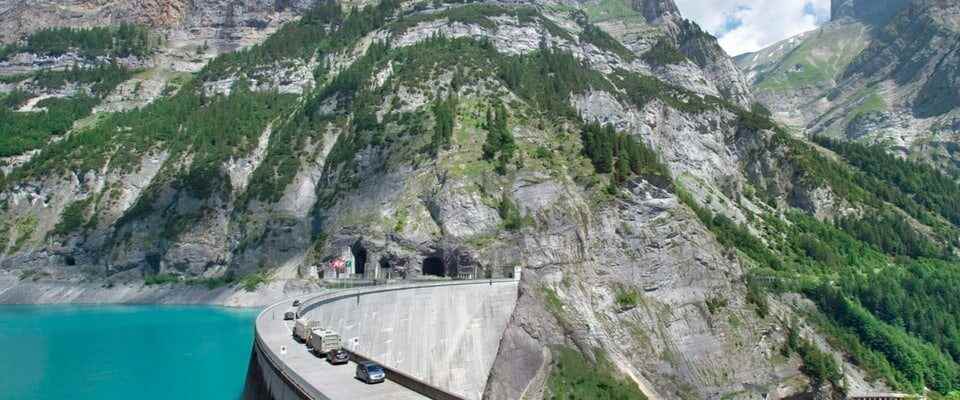contents
The electricity company Axpo does not participate in the hydropower reserve. Politicians find this repugnant and are therefore calling for new framework conditions.
From December 1, water must be retained in reservoirs as an energy reserve. The federal government builds them up in the event of a shortage of electricity in winter. A total of ten companies hold a reserve of 400 gigawatt hours (GWh) in return for compensation, including Alpiq, BKW and Repower.
Axpo – according to its own statements the largest producer of hydropower – is not part of the party. As the “Sonntagszeitung” reported at the weekend, the canton-owned company charged more than twice the average price than the other providers. The federal government did not respond to Axpo’s bid.
Politicians in the major owner cantons, Zurich and Aargau, are unhappy about the price offered for the hydropower reserve at Axpo. “We are disappointed in Axpo that they are not helping,” says Zurich Cantonal Councilor Martin Prettyr (SVP).
We have to teach the company that it has to stand up for the owners.
“It’s very disturbing that exorbitant prices are being asked,” says Gabriela Suter, SP National Councilor for Aargau. She demands more humility from Axpo towards the population, especially with regard to the rescue package of four billion francs approved in Parliament.
Axpo wants to secure supplies elsewhere
Axpo regrets that it did not receive an award for the hydropower reserve and emphasizes that it was nevertheless created within the framework of the federal government’s specifications. “As the largest producer in Switzerland, we will continue to make our daily contribution to winter supplies this winter.” In the summer, Axpo retained water in its reservoirs for the winter and postponed the rehabilitation of the Gigerwald reservoir.
Legend:
Due to the impending power shortage in winter, Axpo interrupted the renovation of the Gigerwald dam in September and postponed it by two years.
KEYSTONE/Gaetan Bally/Archive
From Axpo’s point of view, security of supply cannot be guaranteed by individual companies. “This requires interaction between the industry and politics, which defines the framework conditions.”
Politics demands new framework conditions
Axpo’s expensive offer for the hydropower reserve is understandable for the Bernese National Council and GLP party leader Jürg Grossen. “It’s a market economy. The framework conditions have been set politically in such a way that international wholesale electricity trading and investments abroad are more interesting,” he says.
That is why politicians must ensure that investments are made in Switzerland again. “I’m clearly criticizing politics here,” says Grossen. The FDP Council of States Ruedi Noser (ZH) also sees a need for action: “It must be clearly defined that the three major electricity producers are responsible for the security of supply in Switzerland.”
Ball goes to the cantons
From Noser’s point of view, the nine owner cantons are asked to adapt their framework conditions accordingly. SP National Councilor Suter says: “It is important that the owner strategy is now used to influence the electricity producers so that they are again responsible for the security of supply in our country.” The Zurich cantonal councilor, Schreiner, is pulling in the same direction: “As the largest Axpo shareholder, we have to teach the company that they have to stand up for the owners.”
